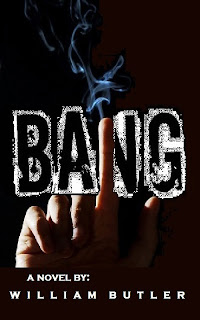In my final installment of “The Cole Cut” for 2011, I saved my largest project for last. It was not the writing of my second novella “Children of Discord,” because it was in the editing stage by the time 2011 came around. Not to kick down my own work, one of my many happy moments of 2011 is winning a book award with a sequel novella.
The largest project, no doubt, was the reading of all five of the “A Song of Ice and Fire” books by George R. R. Martin, or “Game of Thrones,” as in the cable series. I started them sometime during the summer and finished in the fall. Counting the amount of time and the number of pages I think I’ll leave out for fear of triggering a migraine. Let’s just say, I didn’t take a big bite. I ate the whole cake in five huge pieces.
This epic is a masterpiece on many levels. If you like dark fantasy, this series should be either on your nightstand or in your e-reader, keeping in mind, these books are very R-rated and not for kids. The first three books are outstanding. I scaled down my ratings on the last two, but they’re still good and as part of the story, still a must-read, like them or not.
With every review, I mentioned my favorite character, “The Imp,” or “Tyrion Lannister” shown above. (I’ve heard this guy’s up for an Emmy, I hope that’s true and he deserves it for the cable series). He’s not the only character I like, but for a small guy, he stands taller in characterization than the others by wit, cleverness, and generally better intentioned than his dysfunctional family. In the books, he shows great courage in spite of his physical dwarf size.
Readers, for those interested, charge into “A Song of Ice and Fire” using your brain as a lance, because you’ll need it. The series is intriguing, brutal, and brilliant. As I’ve previously written, it’s over-extended and it’s time for Mr. Martin to reel the story in. Even Frodo and Sam got as far as Mount Doom, and re-united with the original “Fellowship of the Ring.” But that’s OK, Mr. Martin still has a lot to teach new authors with this massive epic, so check it out. Again, the readers decide.














































